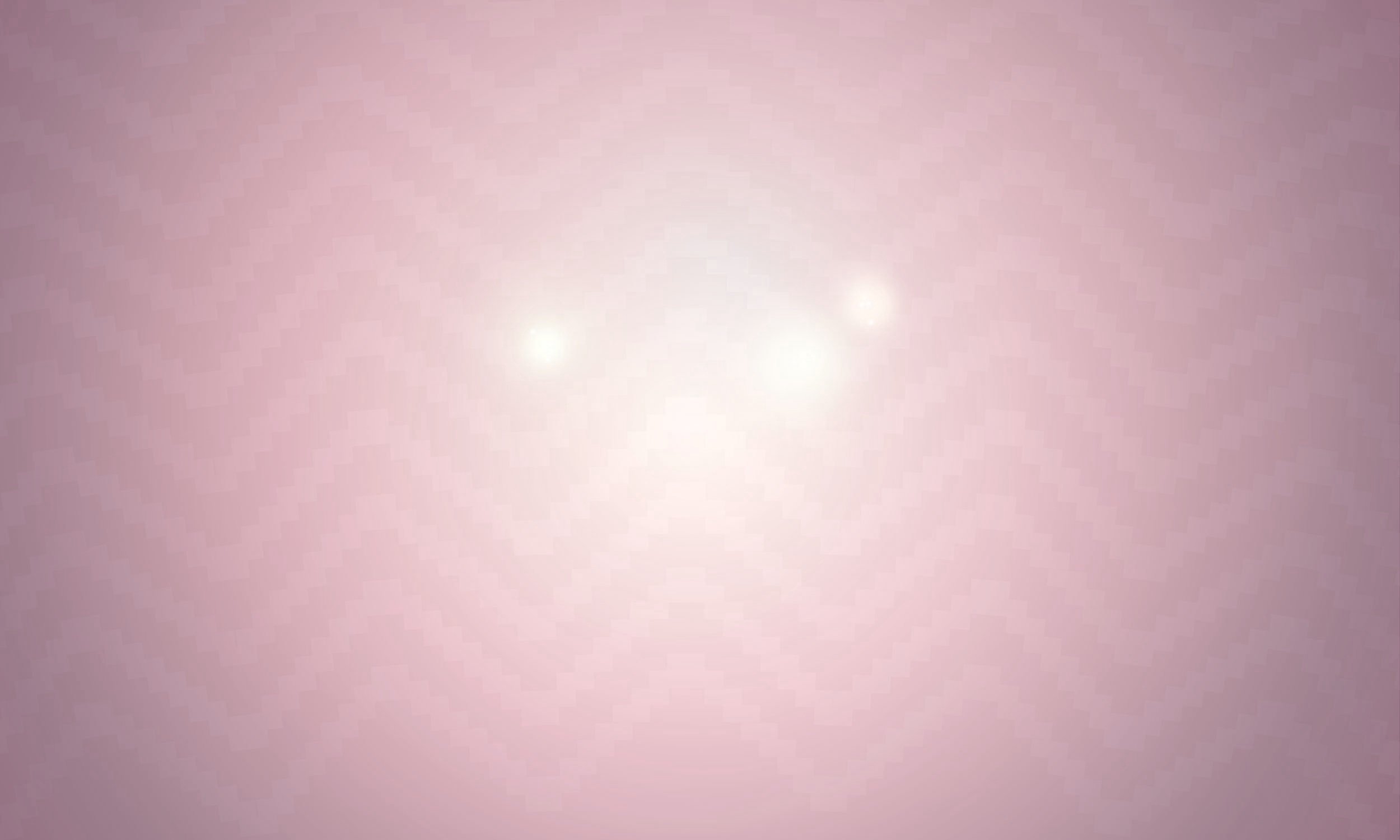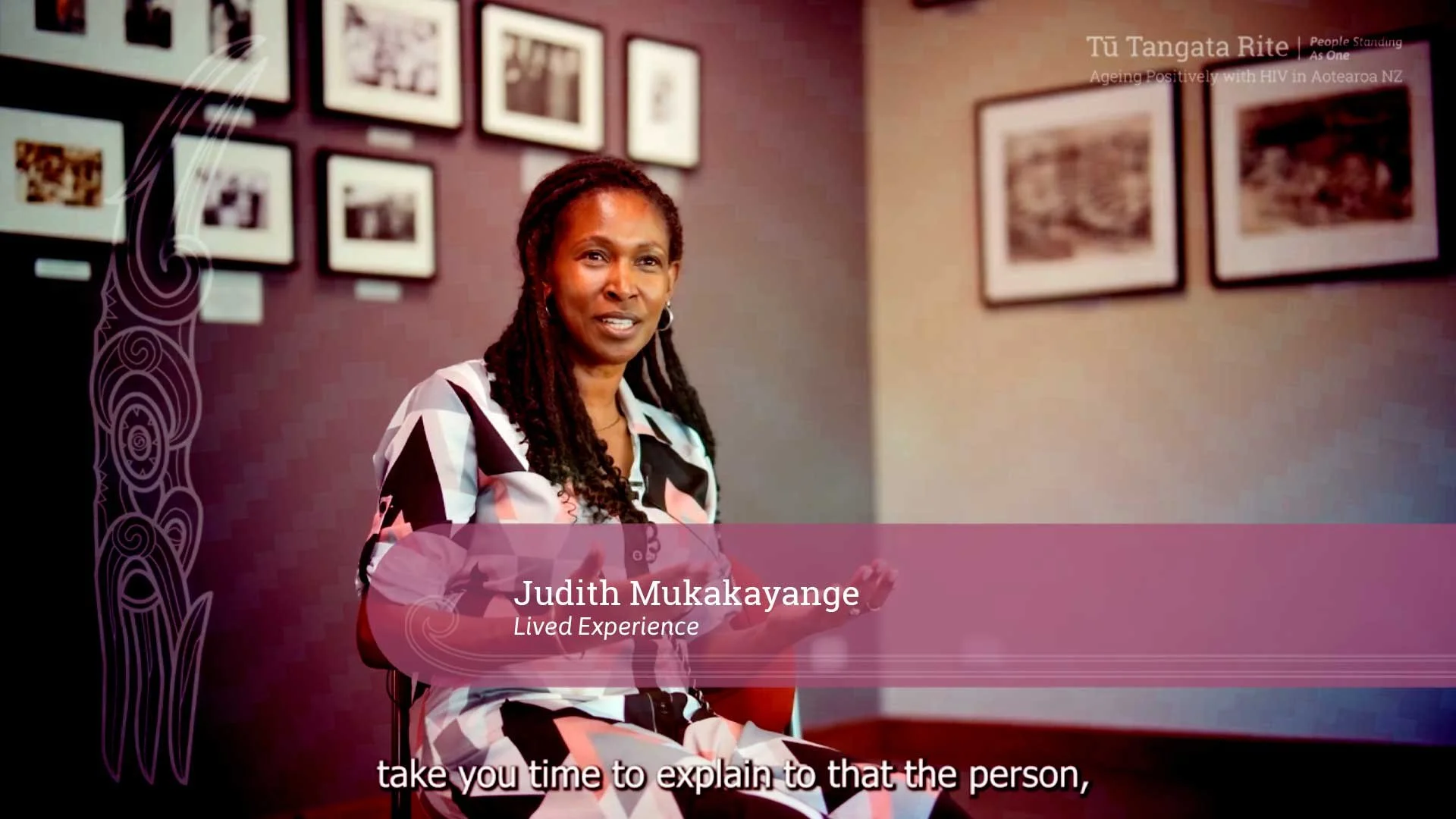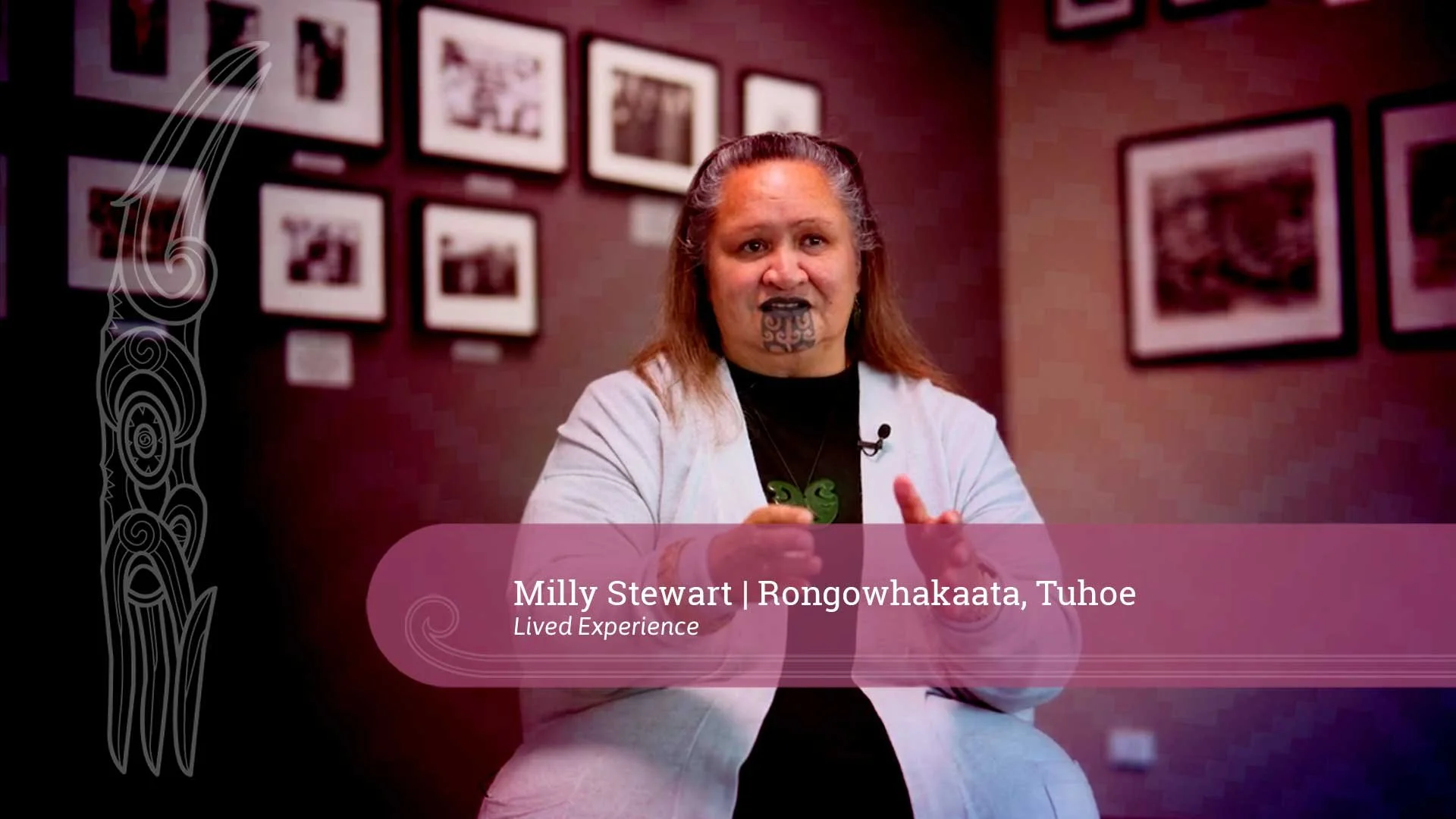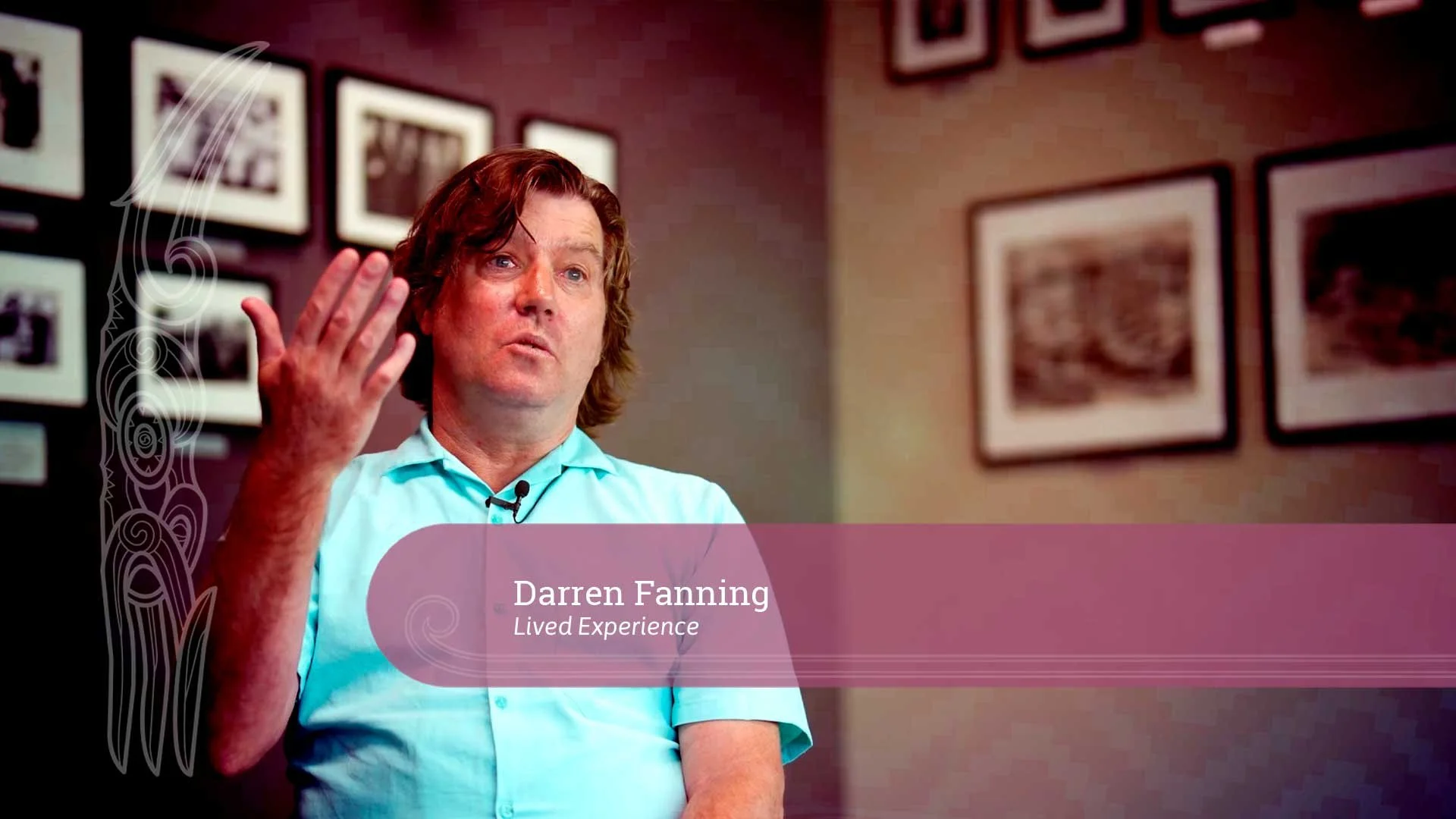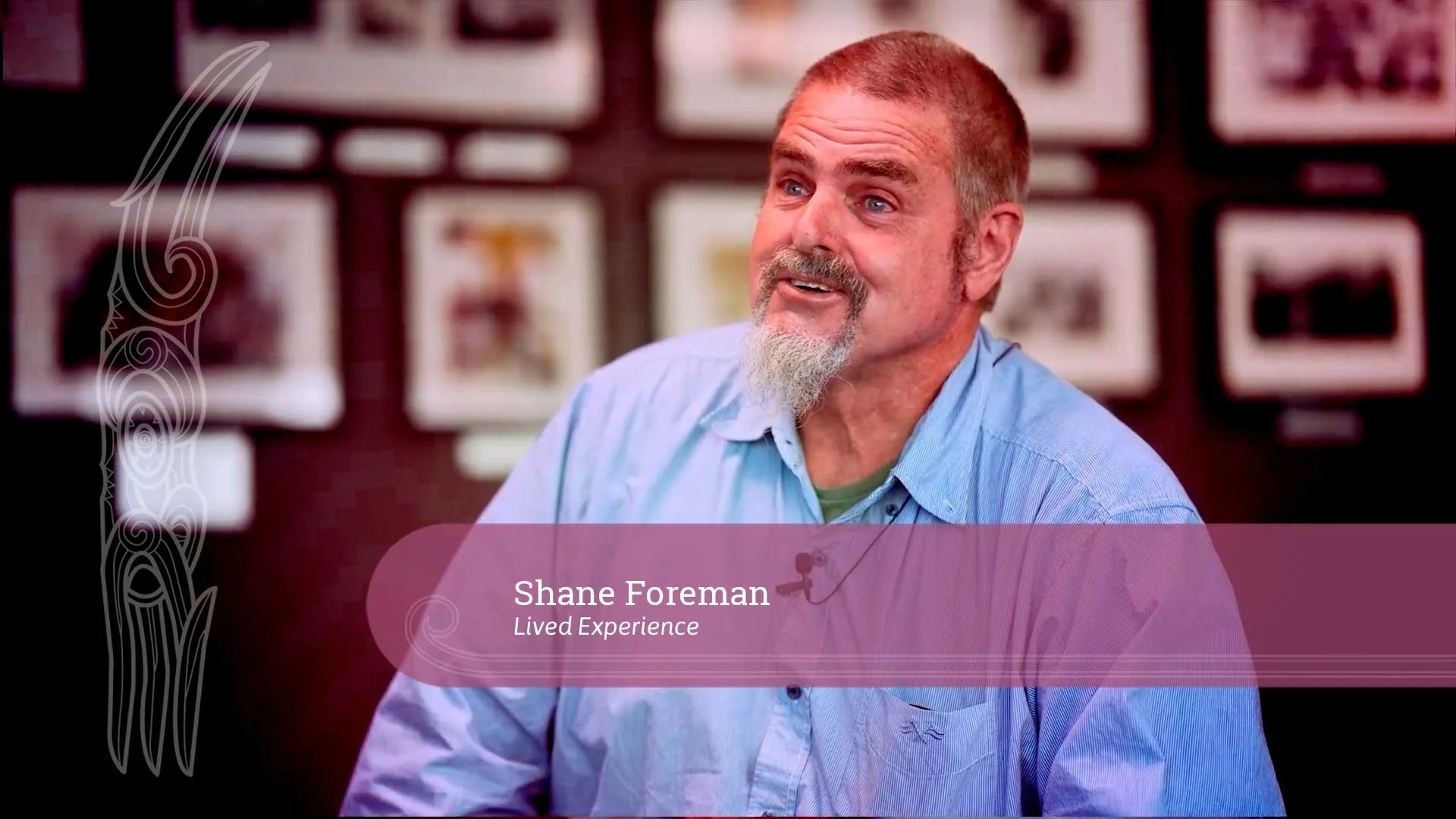
Growing older does not necessarily mean people living with HIV will experience poor health.
Many people who are living with HIV, and are ageing, still experience good health. Finding balance in all parts of our wellbeing can have a positive impact on our overall hauora.
Having access to information, and awareness of common health issues, knowing how to stay well, understanding the role of medication, learning ways we can support our bodies using complementary therapies, and knowing what to keep an eye on, empowers us with the tools and knowledge we need to be autonomous over our physical wellbeing.
Topics on this page:
What is HIV related and what is age related?
As we get older, our immune system naturally weakens making it sometimes hard to know if our health issues are due to HIV, ageing, or something else. This can be confusing, especially when we know something isn’t quite right. Sometimes, our healthcare specialists might dismiss our concerns, saying our issues aren't related to HIV when, in reality, there isn't enough research to be certain.
What we do know is that research shows that HIV and HIV treatments can affect our long-term health. People living with HIV over the age of 50 may develop age-related conditions earlier than people without HIV.
Scientists don't yet know why this happens because HIV and HIV treatments haven't been around long enough to fully study this across a broad population of people but some of the information suggests that because HIV and HIV treatments can cause chronic inflammation, it is the inflammation that is the underlying cause to some emerging health issues.
“We are amongst the first to become older and living with HIV. So, we don't know what we don't know yet because nobody has ever been here before.”
NGĀ TAIPAKEKE O TE URUTĀ HIV RESEARCH PARTICIPANT 2023
Long-term health
Managing HIV can be a lifelong process. It involves taking daily medication to stop the virus progression, then once we have our HIV under control, we need to be monitored for the long-term side effects to try to avoid developing other health problems.
People living with HIV can have a much greater risk of developing other health conditions as they age, than people who don’t. The health problems are called comorbidities and can appear 10-15 years earlier compared to people without HIV.
If we have been living with HIV for a long time or we had a late HIV-diagnosis, studies suggest we are likely to experience premature ageing and HIV-related comorbidities. Scientists aren’t exactly sure why this is but even with effective HIV medication, HIV can still cause ongoing immune system responses and with that, comes inflammation. Chronic inflammation can damage our cells and tissues over time.
Chronic inflammation in HIV is like a constant state of alert for the immune system, even with treatment. It's important to manage it to stay healthy and prevent other problems.
Ongoing inflammation is thought to contribute to various age-related diseases, such as cardiovascular disease, kidney and liver disease, bone density loss, cancer, and neurocognitive impairment. Scientists are working hard to find better ways to reduce inflammation in people living with HIV. However, more research is needed to fully understand the connections between HIV, chronic inflammation, and ageing.
Managing our other health problems alongside HIV is very important part of taha tinana and needs to be carefully monitored to avoid the potential risks and complications that can come from taking multiple medications at the same time.
Learn more about the Long-term effects of HIV & HIV medications.
Understanding medications
Many of us take other medications for other health conditions. It is important we know and understand what all of our medications are for, when to take them, and what to avoid when taking them. We can learn more about how to manage our medication here: Managing medications.
Taking many different medications at the same time can lead to unwanted side effects and possible interactions between the varying medications and is sometimes referred to as Polypharmacy. It can also make our HIV medication less effective or even dangerous because of toxicity to our liver.
We can use a medication checker tool to check any potential interactions. If we are unsure, we can ask our pharmacist to help us keep on top of our prescriptions and ensure we don’t run out. Pharmacists can also advise us about side effects and how best to manage them.
Relationships with healthcare providers
Building a trusting relationship with our healthcare providers, such as our GP, is essential for us to access the care and support we need for our taha tinana.
We know our own bodies better than anyone. If something feels off, we need to keep pushing for answers.
Respect and effective communication
Mutual respect is fundamental in the relationship with our healthcare providers. Feeling comfortable and respected encourages open communication and creates a partnership in our health.
Clear and accessible information
Receiving clear and useful health information is crucial to us being able to make informed decisions. This could include written materials, pamphlets, or verbal explanations using simple language and terminology.
Personalised care
How our bodies respond and interact with HIV and the treatments, and what we need to keep our tinana well, can be different for everyone. Being treated as a unique individual helps ensure we feel heard and understood.
Accessing health information
Currently, all of our health and wellbeing information is stored in different places, in different formats, can be difficult to access and varies from region to region. Te Whātu Ora are currently building a system called Hira. Read more about HIRA.
Knowing how to access and understand our health information can be very empowering and can help us manage our tinana.
Rongoā - traditional Māori healing
Rongoā is a form of traditional Māori healing. Rongoā includes using plants for medicine, physical therapies, and spiritual healing practices. It is used to support our tinana, hinengaro, whatumanawa, hauora, mauri and wairua. Rongoā, is widely recognised within Māori communities and is increasingly being acknowledged within the wider NZ healthcare system.
Learn more about Rongoā
Complementary therapies
It is estimated more than half of us use some sort of non-medical therapy to help relieve HIV symptoms or side effects from treatment, or to help improve our hinengaro and overall sense of wellbeing.
Some examples of complementary therapies available in Aotearoa include Rongoā, Acupuncture, Herbal medicine, Massage and Reflexology, Homeopathy, Naturopathy, Osteopathy, and Aromatherapy.
It is important to discuss with our doctor or qualified therapist before trying any complementary therapies, to ensure they're safe and work well with our regular medications. Read more about complementary therapies, and benefits.
Oral health
Many of us will experience a decline in the quality of our teeth and gums as we age and caring and getting treatment from dentists can be incredibly expensive. Statistically, many of us have also experienced stigma and discrimination because of our HIV, making it even less appealing to go again.
Learn more about managing our oral health.
Sexual health
For some of us, talking about sex, sexual desires and intimacy, and our sexual health is a tapu subject. Others might be more open and liberal. Wherever we are, it's important we respectfully share knowledge about sexual health and how to take care of it. Read more about sexual health & ageing.
Find more information about intimacy and sexuality.
Just because we are getting older, does not mean our sexual desires stop - we can continue to have a healthy and fulfilling sex life.
Health screening
It is recommended people living with HIV aged 50 and over are monitored for some common health conditions. This can help us stay on top of our orangātiratanga o te tinana, our physical wellbeing.
We need to understand what health conditions we need to be monitored for, why, and how often. We have developed a list of
General health screenings for People living with HIV aged 50+
Regular check-ups can help pick up any health issues early so they can be treated or managed properly.
Maintaining our wellness
There are lots of things we can do to stay healthy as we get older with HIV. Eating well, exercising, and managing stress can help us avoid common health problems or injuries. Get some tips on how to stay well.
If you need help with your taha tinana, you are not alone. There is support available.
Eating well, exercising, and managing stress can help us avoid other common health problems
